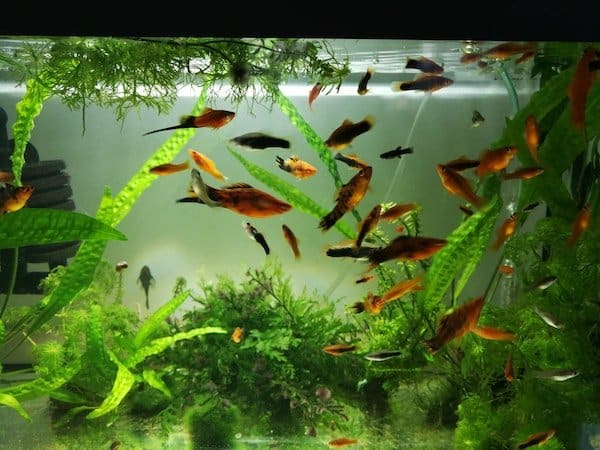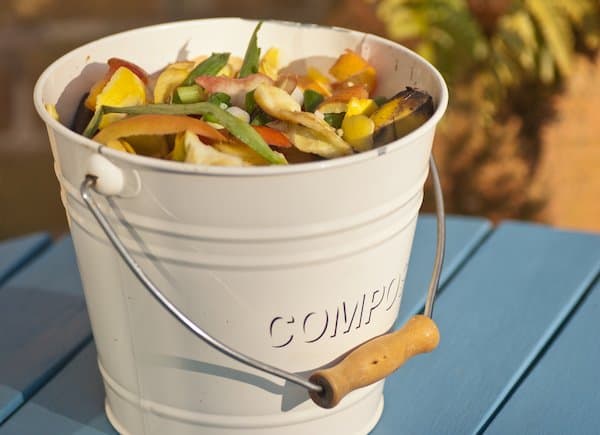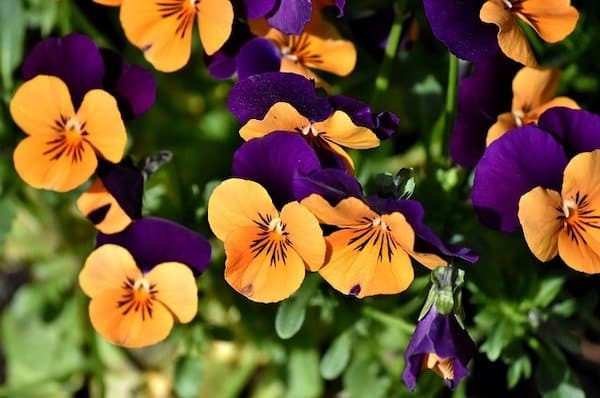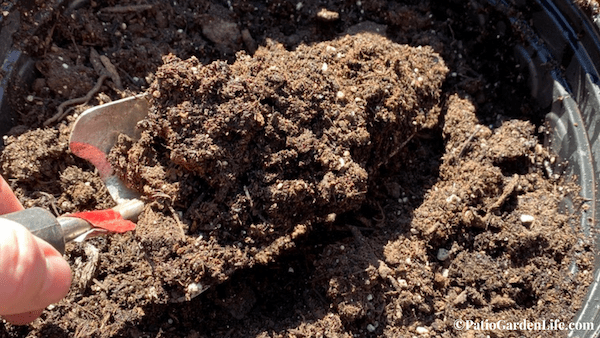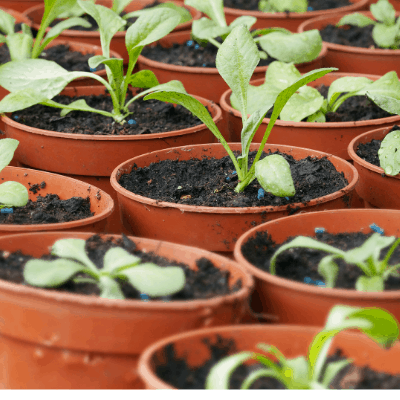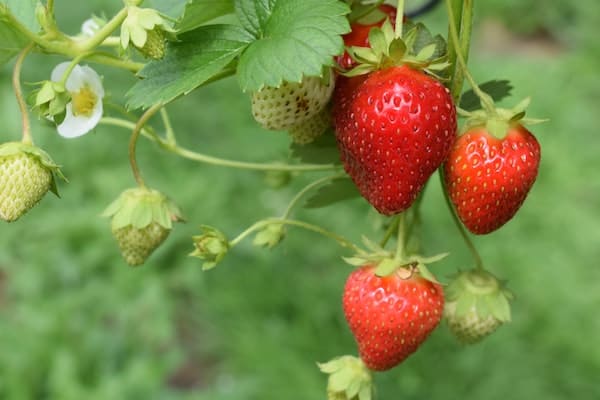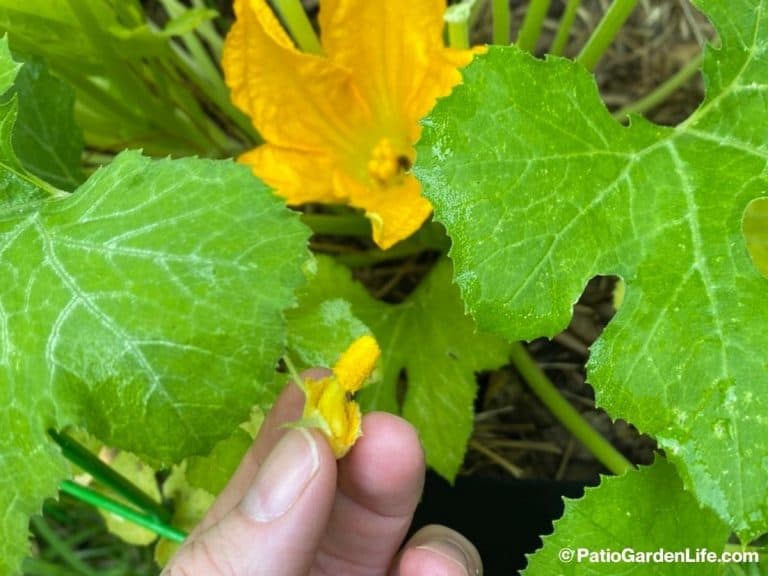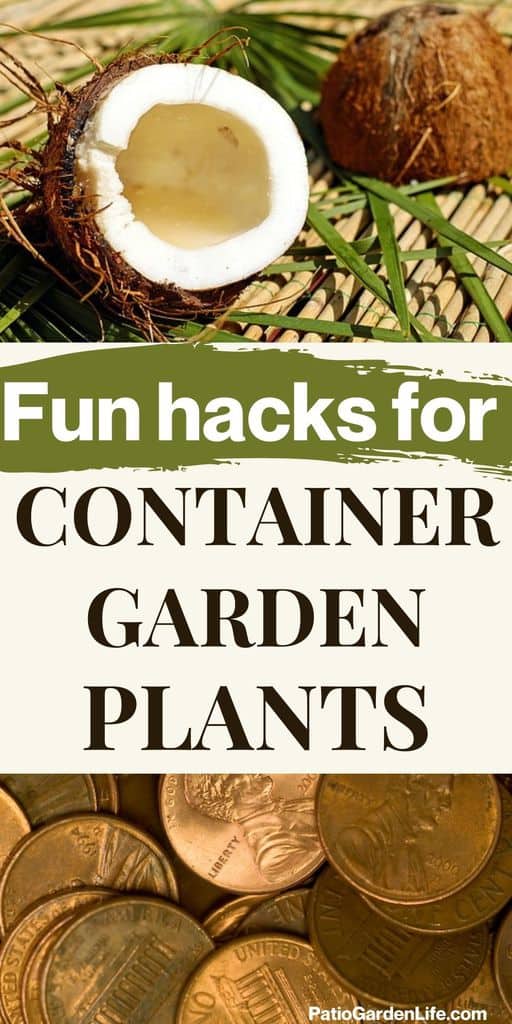Unusual home remedies for plants
Whether they have some scientific basis or they’re purely folklore, there are some WEIRD fertilizers out there! From banana water to aquarium water to weed tea to buried pennies … gardeners are willing to try just about any home remedies for plants to boost their veggies and increase yield.
Not all of these have scientific backing, but they’re popular home remedies for a reason. And worth a try! It’s fun to think we can turn to our kitchen and other household items to help our plants on the cheap.
Read on for some examples of weird fertilizers and home remedies for plants and how to use them.
This post may contain affiliate links. If you buy something through these links, we may earn a small commission at no cost to you.
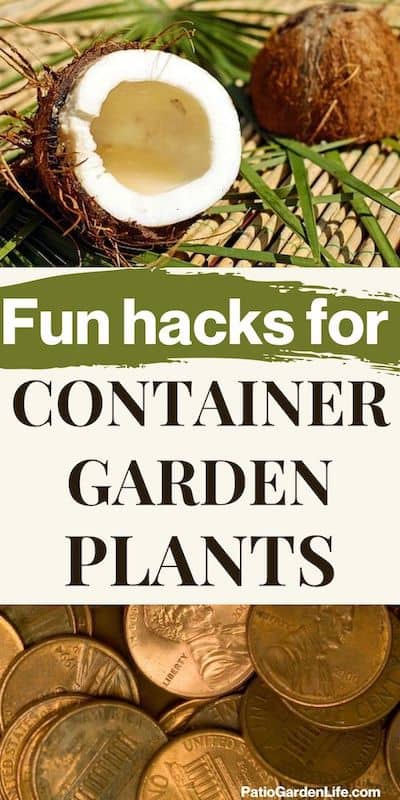
Aquarium water
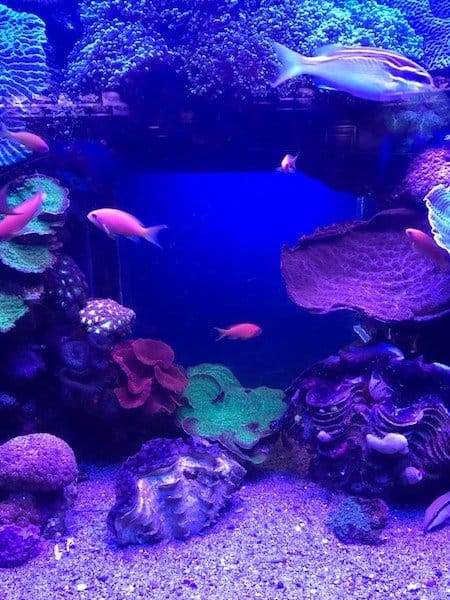
If you have a fish tank in the house, you are looking at some really great fertilizer.
Fish need their tank cleaned regularly so they aren’t swimming in waste – but there’s no need to wash it down the drain.
That waste is full of nitrogen, phosphorus, ammonia, and other nutrients. Simply use this waste water to water the garden.
Do keep in mind that you need to be cleaning it regularly so the nutrients aren’t too concentrated, and don’t use it on plants if you have had to treat it chemically. Also be sure not to use salt water.
And should a small fish unfortunately meet their demise, don’t be afraid to put them right in the soil, too. I mean … it’s sad to lose a fish friend, but fish emulsion is an amazing and popular fertilizer for a reason.
Baking soda
Baking soda is a fungus fighter and a popular home remedy for plants and gardens. If you’re starting to see mildew on your fruit-bearing plants, dissolve a tablespoon of baking soda in a gallon of warm water.
Carefully spray your plants until they are drenched and dripping onto the soil. This should help halt mildew in its tracks!
Banana water
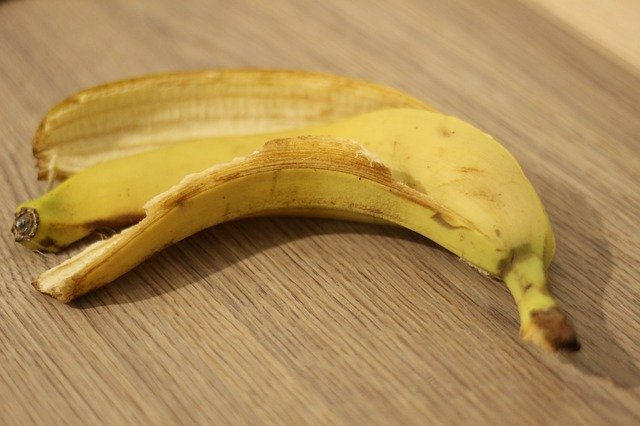
Banana peels are obviously a great piece of “garbage” to add to your compost pile, but did you know you can also simply drop them onto the soil as well?
However, they take some time to decompose, which isn’t ideal in a container garden. So to get the most benefit from banana peels, try making a banana tea or banana water from them. Some gardeners are skeptical about the actual benefits of banana water, but others swear by it for lush, potassium-fueled growth!
And either way, it can’t hurt to try.
Keep a pitcher of water in the fridge and add peels as your family consumes the bananas. After about a week, the tea will have steeped enough to have beneficial potassium.
Some plants that especially love potassium are tomatoes and peppers, so use the banana tea every few weeks when you water them. Note: It’s best to dilute banana tea in a 1:5 ratio with plain water.
Burying pennies
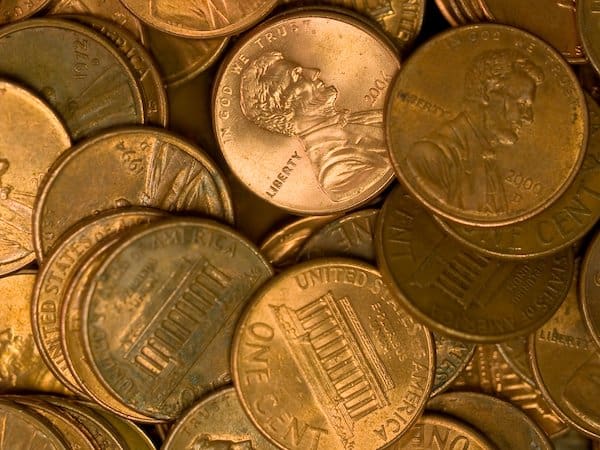
Copper is a convenient and common fungicide. When you bury some pennies in your soil, they will slowly leach their copper and can cut off fungus at the spore stage.
For that reason, and considering the cost of inflation today, pennies just might be more valuable in your soil than in your pocket …
Coconut water
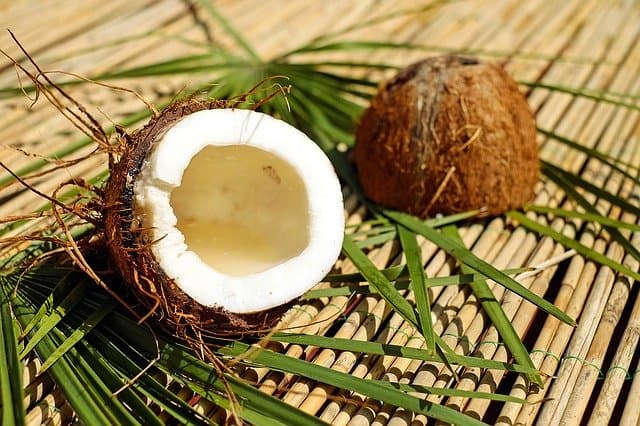
Coconut is full of electrolytes, which is why athletes drink coconut water for recovery.
These same ingredients that help bodies recover will also help seeds germinate. They can also help roots develop in your plant cuttings.
While it can be an acquired taste for humans, plants just care about the nutrients.
Add an 8-ounce carton of coconut water to the water in your watering can or spray bottle once every couple of weeks.
Coffee grounds
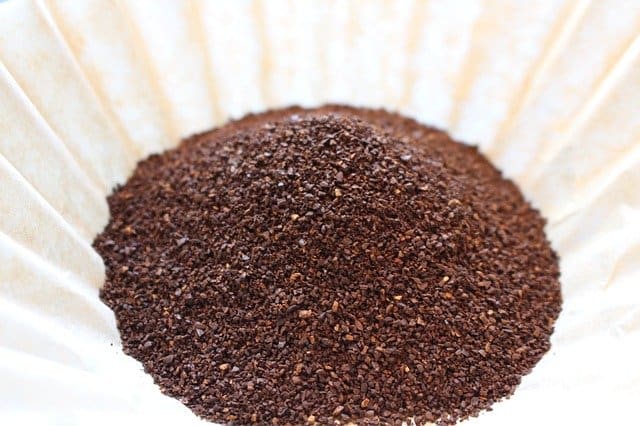
Some gardeners use brewed coffee to add acidity to their soil. Keep in mind that used grounds have given up their acid to the brew, so they are now neutral.
Let used grounds dry so they don’t create a fungus-growing environment! Then you can sprinkle them among your plants to add antioxidants, nitrogen and potassium.
Eggshells
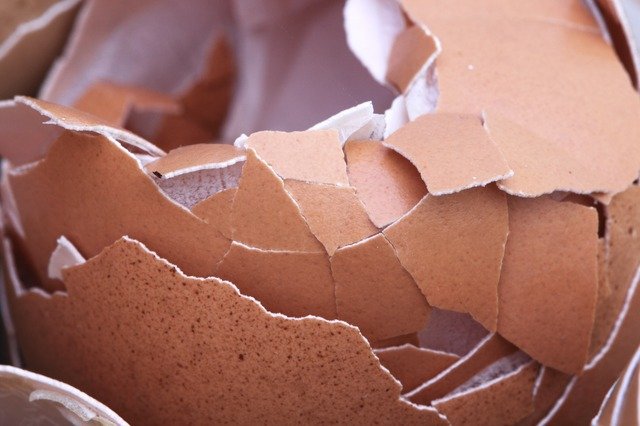
Generally we’re told to avoid animal products in our compost and plants so animals don’t come digging. Eggshells are an …. egg-ception … as long as you clean them first.
Rinse and dry the eggshells to ensure there is no raw egg remaining. Once dry, you can use a coffee or spice grinder to grind them up, or simply crush them in a sandwich bag.
Add the crushed shells on top of your potting soil but under the mulch, if you have a mulch layer, so calcium leaches into the soil as they decompose.
Added bonus: Eggshells are sharp and can deter some pests.
Epsom salt
Epsom salts contain magnesium, which is perfect for soaking your legs after a long run. Magnesium is also a component of chlorophyll – so our plant friends love a good epsom salt bath too!
That’s why epsom salts are a popular home remedy for plants.
Sprinkle some organic epsom salts around the base of your plants once a week. This is especially helpful when they are bearing fruit, like pepper plants, and they’ve been falling off the branch.
Give them support with salt so the fruit has a chance to mature.
Gelatin
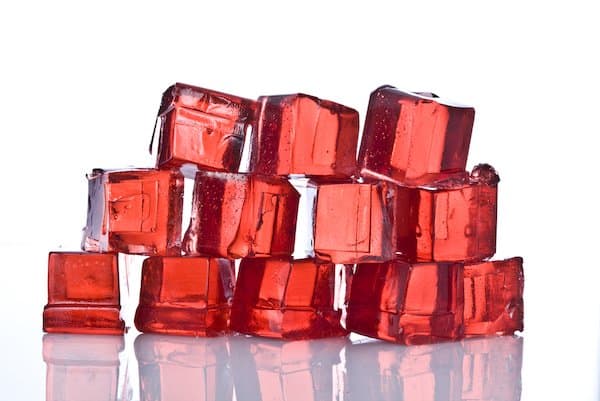
Grab a packet of unflavored gelatin on your next grocery store run.
If you dissolve this in one cup of hot water and then add 3 cups of cold water, you won’t be making jigglers. Instead, water your plants directly with this mixture so they receive beneficial collagen.
This is great for both your houseplants and your garden.
Human hair
… what? Human hair? YEP. If you have a squirrel or bird problem, there’s nothing like it!
I cut my family’s hair myself and with each haircut, I keep a few locks in a ziplock bag. Then whenever I plant a new container of something or have squirrels digging in my existing containers, I have some ready to go.
I just push a few pinches of hair clippings a 1/2 inch or so beneath the surface of the potting soil, in a few spots around the pot, and leave it be. That’s it!
The scent deters squirrels safely and without any harmful chemicals or cumbersome covers or cages. It’s so easy and it works every time!
If you don’t cut your own hair at home, just bring a baggie with you to the salon next time you get a cut and ask for some of the clippings. It might sound weird, but I bet they’ve heard it before!
Milk
Milk does a body (I mean plant) good! It contains calcium, vitamin B, proteins and other beneficial nutrients and minerals.
Straight milk isn’t the best idea for plants, so dilute it 1:5 with water and give it a try around a few plants. Some say this dilution can combat mildew and makes for sturdy plants.
Just make sure not to do this too often in a small container garden, so the milk doesn’t rot and give off an unpleasant stench.
Rusty nails
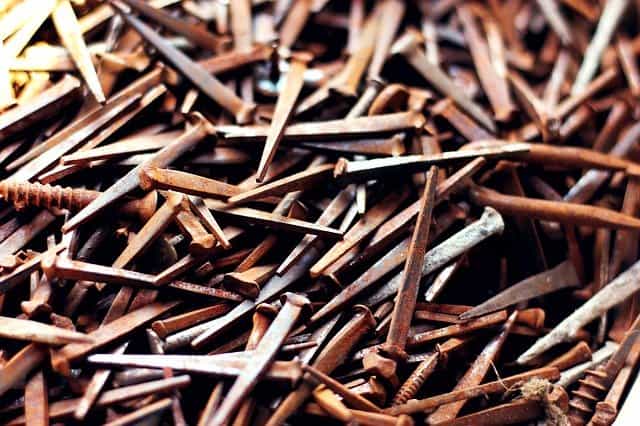
If you have yellowing leaves where the veins are still green, this can be a sign of iron deficiency.
Set some rusty nails in your watering can or a spray bottle, so they release their iron into the water. Spray this directly on the leaves to help them absorb the iron.
Weed tea
Want to get revenge on weeds? Pull them up, chop them up (roots and all) and then toss them in a bucket of water in the sun for a few days.
This will “brew” the nitrogen from the plants and you can then use it to water your plants. Voilà … a home remedy that also takes care of the weed problem in your yard.
Be sure to strain the tea, to prevent any stowaway seeds from taking up residence in your containers.

